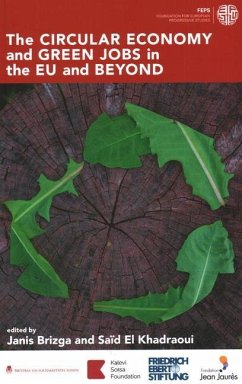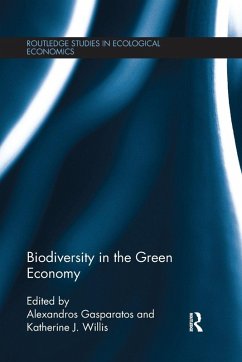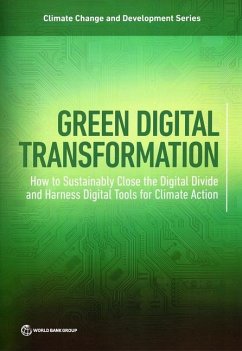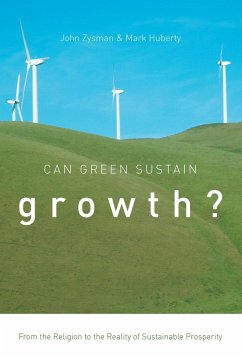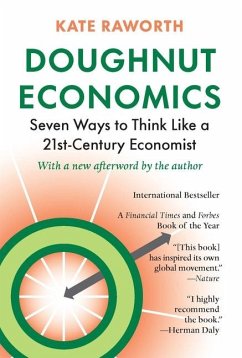
Green Capital / Le Capital vert
De nouvelles sources de la croissance

PAYBACK Punkte
20 °P sammeln!
Christian de Perthuis is a professor of economics at Paris-Dauphine University and the founder of the Climate Economics Chair. He recently published Economic Choices in a Warming World (Cambridge University Press). Pierre-André Jouvet is a professor of economics at the University of Paris-Ouest-Nanterre-la Défense and the scientific director of the Climate Economics Chair. He recently published Global Environmental Commons: Analytical and Political Challenges in Buieding Governance MechanI'ms (Oxford University Press). Green growth seems to have been forgotten by political leaders, obsessed ...
Christian de Perthuis is a professor of economics at Paris-Dauphine University and the founder of the Climate Economics Chair. He recently published Economic Choices in a Warming World (Cambridge University Press). Pierre-André Jouvet is a professor of economics at the University of Paris-Ouest-Nanterre-la Défense and the scientific director of the Climate Economics Chair. He recently published Global Environmental Commons: Analytical and Political Challenges in Buieding Governance MechanI'ms (Oxford University Press). Green growth seems to have been forgotten by political leaders, obsessed as they are by the current economic crisis. Should economic growth be limited, as advised in the Club of Rome's famous report - but at the risk of setting back the clock by forty years? We often reason as if nature were a finite (exhaustible) stock of resources, making growth and ecological concerns incompatible. For the authors, however, nature is a set of regulatory systems (water, climate, etc.), which benefit the economy but are threatened by current forms of growth. Consequently, they argue that'such systems should be regarded as a new production factor - natural capital - attracting investments that'should be remunerated. Exploring existing areas of experimentation (climate, biediversity, agriculture), the authors urge us to make the transition to a green economy - which will imply a major shakeup in technology, social organisation and public policies.- The book that lays the theoretical foundations of the green economy and argues against many received ideas: going green will cost too much; it's utopian; it's anti-progressive.- With numerous examples to guide local authorities and business enterprises.





